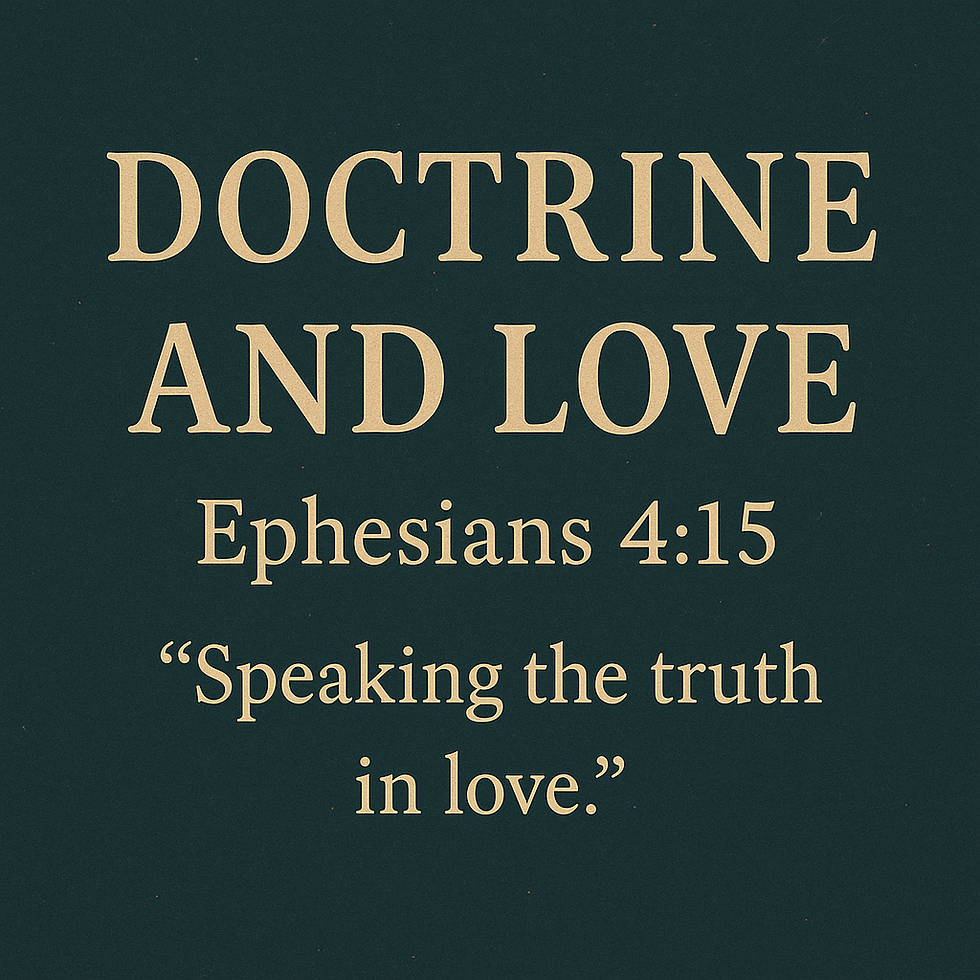Day 2: Doctrine Means Teaching, Not Opinions
- Corby Davis
- Sep 5, 2025
- 2 min read
Scripture Reading:
“Holding fast the faithful word which is in accordance with the teaching, so that he will be able both to exhort in sound doctrine and to reprove those who contradict.” – Titus 1:9, LSB
What is doctrine? Many think of it as complex theories or church-made traditions. But the word “doctrine” simply means teaching. Every time you hear a sermon, read your Bible, or explain the gospel, you are dealing with doctrine. The question is not whether we will have doctrine, but whether our doctrine will be sound, faithful, and true to God’s Word.
Paul tells Titus that elders must “hold fast the faithful word” so they can both encourage and correct. The church is not guided by speculation or cultural trends but by teaching that flows directly from God. Sound doctrine, then, is simply God’s truth faithfully taught.
R.C. Sproul captures this when he says, “Everyone’s a theologian. The only difference is whether we are good theologians or bad ones” (Everyone’s a Theologian, p. 1). Every Christian believes something about God; the question is whether those beliefs are shaped by Scripture or by the shifting ideas of the world.
This matters deeply because opinions cannot save. Human ideas change like the wind, but God’s truth endures forever (Isa. 40:8). John Calvin warned that to abandon the teaching of Scripture is to “stray like wanderers into the labyrinth of human opinions” (Institutes, 1.6.3). In contrast, to hold to God’s doctrine is to walk in the light of His truth.
Sound doctrine does two vital things: it builds up and it protects. Paul says it enables leaders to exhort believers in truth and to reprove those who contradict. Without doctrine, a church has no foundation for encouragement or correction. With doctrine, the church can grow in love, holiness, and faithfulness while resisting error. Dr. Joel Beeke puts it well: “Doctrine is the lifeline of the church; without it, we drown in a sea of subjectivity” (Living for God’s Glory, p. 47).
Today, many dismiss doctrine in favor of “experience.” But experience apart from truth cannot sustain faith. The Israelites experienced God’s power at Sinai, yet without doctrine, they quickly built a golden calf (Exod. 32). Experience fades; truth endures. This is why Jesus prayed, “Sanctify them in the truth; Your word is truth” (John 17:17). Our holiness depends on God’s teaching, not our feelings.
Beloved, let us never treat doctrine as optional. It is not cold speculation but God’s living truth for His people. To despise doctrine is to despise His voice. To embrace doctrine is to embrace Him. Let us be a people who love His teaching, for only then will our churches be strong, our witness be clear, and our lives be faithful to Christ.
Personal Reflection
How does understanding “doctrine” as simply “teaching” change the way you think about it?
Why is it dangerous for the church to replace doctrine with personal opinion or cultural ideas?
What are practical ways you can hold fast to sound doctrine in your daily walk?
How does doctrine both encourage believers and protect the church from error?



Comments